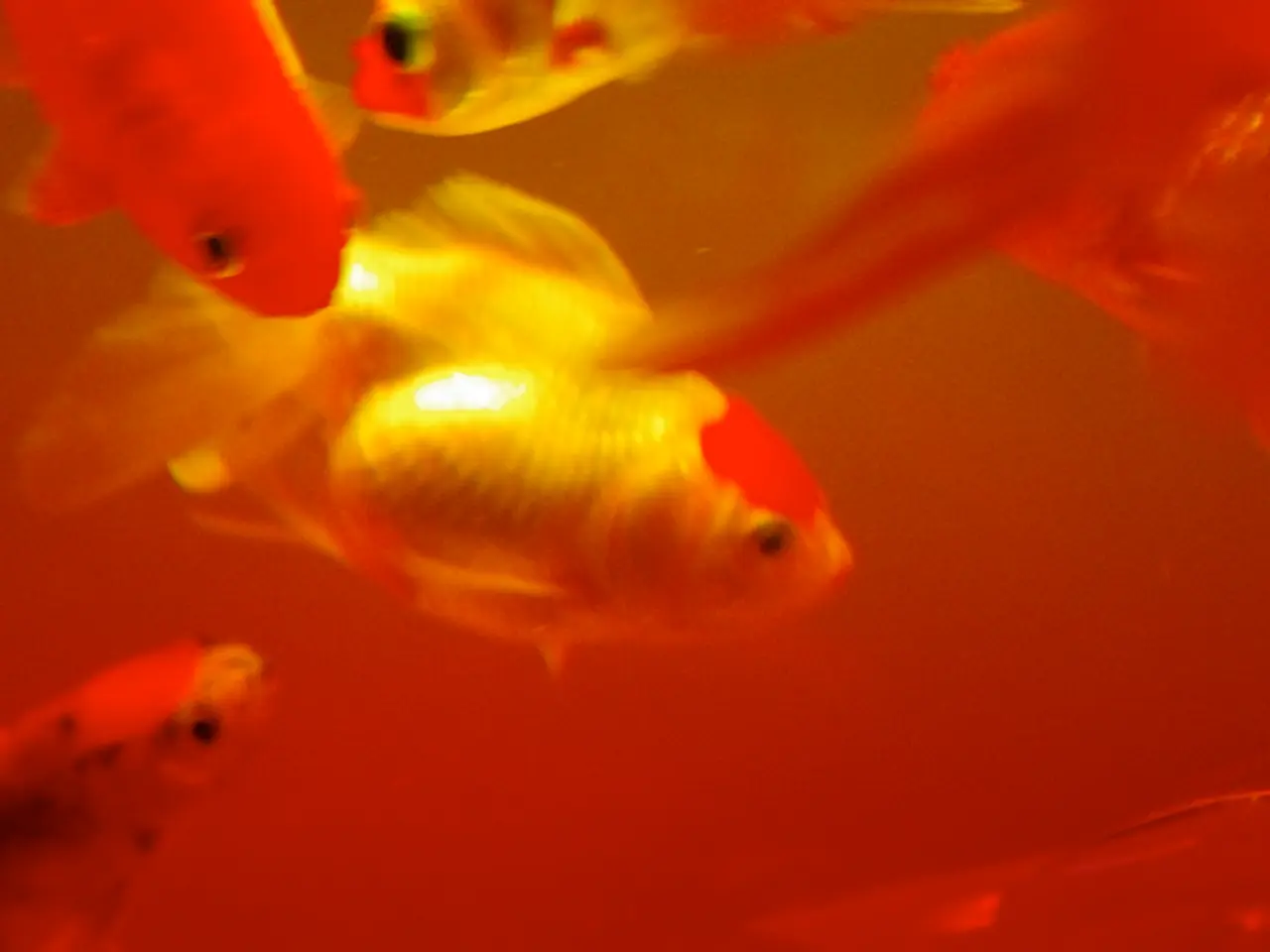Koi fish recognize faces: An examination of the intelligence in aquatic creatures
In a groundbreaking discovery, researchers have found that koi fish are capable of recognizing and remembering human faces, challenging the long-held belief that fish are simple, instinct-driven creatures [1]. This new understanding of koi intelligence is transforming our perception of fish and broadening our perspective on animal cognition.
The ability of koi to distinguish individual humans, not just respond to the presence of food, reveals a sophisticated level of cognitive recognition that goes beyond simple stimulus-response behaviour. The mechanism behind this facial recognition remains to be fully understood, but it is believed to involve visual learning and memory, similar to other animals capable of individual recognition [1].
This revelation has significant implications for our understanding of animal intelligence. Koi's facial recognition abilities challenge the traditional view that complex cognitive abilities are limited to mammals and birds. It indicates a level of social intelligence and memory more advanced than previously assumed for fish, suggesting that these aquatic creatures may experience a more nuanced relationship with their environment and caretakers [1].
The implications for conservation are equally profound. Understanding that fish such as koi have cognitive abilities and social recognition can foster greater empathy and respect towards them. This may influence conservation policies and ethical standards concerning fish welfare, captivity, and habitat protection. Recognizing such intelligence emphasizes the ecological importance of fish species and their roles in aquatic ecosystems, potentially improving support for their preservation [1].
This newfound understanding of koi intelligence also has implications for the aquaculture industry. Advanced training programs have taught koi to respond to hand signals, colored objects, or specific clothing patterns, which could be incorporated into farming practices for more efficient and humane fish farming [1].
As we continue to uncover the depths of animal intelligence, we must ask ourselves: what other remarkable abilities are we overlooking in the creatures that share our world? Understanding koi intelligence has implications for fish conservation efforts worldwide, and it serves as a reminder that every species, no matter how small or seemingly simple, has the potential to surprise us with its cognitive abilities [1].
Sources: [1] Scientific American - "Koi Fish Can Recognize Human Faces, Suggesting Advanced Cognitive Abilities in Fish" (Link to the article if available)
- The scientific research on koi fish's facial recognition ability opens doors to further conservation efforts aimed at protecting their ecosystems and habitats.
- As we delve deeper into the realm of animal intelligence, the evolution of our perception of fish is a testament to scientific discoveries challenging earlier assumptions.
- In workplaces, fostering a heightened awareness of health-and-wellness extends to embracing the mental-health benefits of interacting with intelligent species like koi fish.
- Fitness-and-exercise routines may evolve to incorporate environmental-science learning about fish intelligence, offering unique opportunities for personal-growth and education-and-self-development.
- Mental-health care therapies could potentially extend to include interactions with koi fish, considering their complex cognitive abilities and potential for human connection.
- Caring for koi means more than feeding them; it involves understanding their mental health needs and facilitating an environment that promotes healthy cognitive development.
- Mens-health advocates may encourage outdoor activities or aquatic hobbies involving koi fish care, citing potential benefits for overall health and wellness.
- CBD products, known for their therapeutic effects, could be researched for their potential application in skin-care regimens to improve the skin health of koi fish in aquariums.
- Analyzing the nutritional requirements of intelligent koi may lead to improved diets for optimal mental performance, contributing to their general health and well-being.
- Aging studies of koi could provide insight into the cognitive effects of time, aiding scientific understanding of aging processes and potential interventions in human longevity.
- Understanding koi's facial recognition abilities can inspire new strategies for womens-health and parenting, emphasizing the importance of nurturing the minds of future generations, not just their bodies.
- Weight-management programs may see a shift towards incorporating enriching fish-care activities, recognizing the potential mental and emotional benefits associated with interacting with intelligent species.
- As more is learned about koi intelligence, space-and-astronomy enthusiasts might speculate on the existence of cognitive abilities among extra-terrestrial life forms, inspiring groundbreaking research in that field.
- Lifelong learning about animal intelligence and its implications for various aspects of human life, from career-development to skill-training, ensures that we stay open to learning and adapting in our ever-evolving world.




